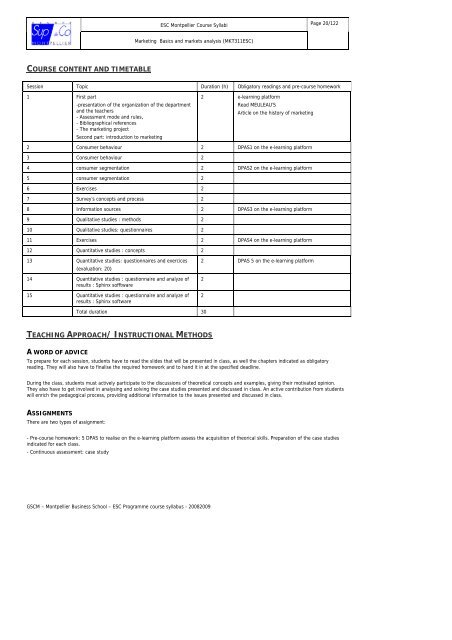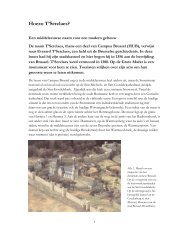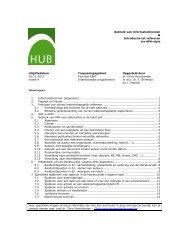esc montpellier course syllabi groupe sup de co ... - HUBRUSSEL.net
esc montpellier course syllabi groupe sup de co ... - HUBRUSSEL.net
esc montpellier course syllabi groupe sup de co ... - HUBRUSSEL.net
You also want an ePaper? Increase the reach of your titles
YUMPU automatically turns print PDFs into web optimized ePapers that Google loves.
COURSE CONTENT AND TIMETABLE<br />
ESC Montpellier Course Syllabi<br />
Marketing Basics and markets analysis (MKT311ESC)<br />
GSCM – Montpellier Business School – ESC Programme <strong><strong>co</strong>urse</strong> syllabus - 20082009<br />
Page 20/122<br />
Session Topic Duration (h) Obligatory readings and pre-<strong><strong>co</strong>urse</strong> homework<br />
1 First part<br />
-presentation of the organization of the <strong>de</strong>partment<br />
and the teachers<br />
- Assessment mo<strong>de</strong> and rules,<br />
- Bibliographical references<br />
- The marketing project<br />
Se<strong>co</strong>nd part: introduction to marketing<br />
2 e-learning platform<br />
Read MEULEAU’S<br />
Article on the history of marketing<br />
2 Consumer behaviour 2 DPAS1 on the e-learning platform<br />
3 Consumer behaviour 2<br />
4 <strong>co</strong>nsumer segmentation 2 DPAS2 on the e-learning platform<br />
5 <strong>co</strong>nsumer segmentation 2<br />
6 Exercises 2<br />
7 Survey’s <strong>co</strong>ncepts and process 2<br />
8 Information sources 2 DPAS3 on the e-learning platform<br />
9 Qualitative studies : methods 2<br />
10 Qualitative studies: questionnaires 2<br />
11 Exercises 2 DPAS4 on the e-learning platform<br />
12 Quantitative studies : <strong>co</strong>ncepts 2<br />
13 Quantitative studies: questionnaires and exercices<br />
(evaluation: 20)<br />
14 Quantitative studies : questionnaire and analyze of<br />
results : Sphinx sofftware<br />
15 Quantitative studies : questionnaire and analyze of<br />
results : Sphinx software<br />
Total duration 30<br />
TEACHING APPROACH/ INSTRUCTIONAL METHODS<br />
A WORD OF ADVICE<br />
2 DPAS 5 on the e-learning platform<br />
To prepare for each session, stu<strong>de</strong>nts have to read the sli<strong>de</strong>s that will be presented in class, as well the chapters indicated as obligatory<br />
reading. They will also have to finalise the required homework and to hand it in at the specified <strong>de</strong>adline.<br />
During the class, stu<strong>de</strong>nts must actively participate to the discussions of theoretical <strong>co</strong>ncepts and examples, giving their motivated opinion.<br />
They also have to get involved in analysing and solving the case studies presented and discussed in class. An active <strong>co</strong>ntribution from stu<strong>de</strong>nts<br />
will enrich the pedagogical process, providing additional information to the issues presented and discussed in class.<br />
ASSIGNMENTS<br />
There are two types of assignment:<br />
- Pre-<strong><strong>co</strong>urse</strong> homework: 5 DPAS to realise on the e-learning platform assess the acquisition of theorical skills. Preparation of the case studies<br />
indicated for each class.<br />
- Continuous assessment: case study<br />
2<br />
2




